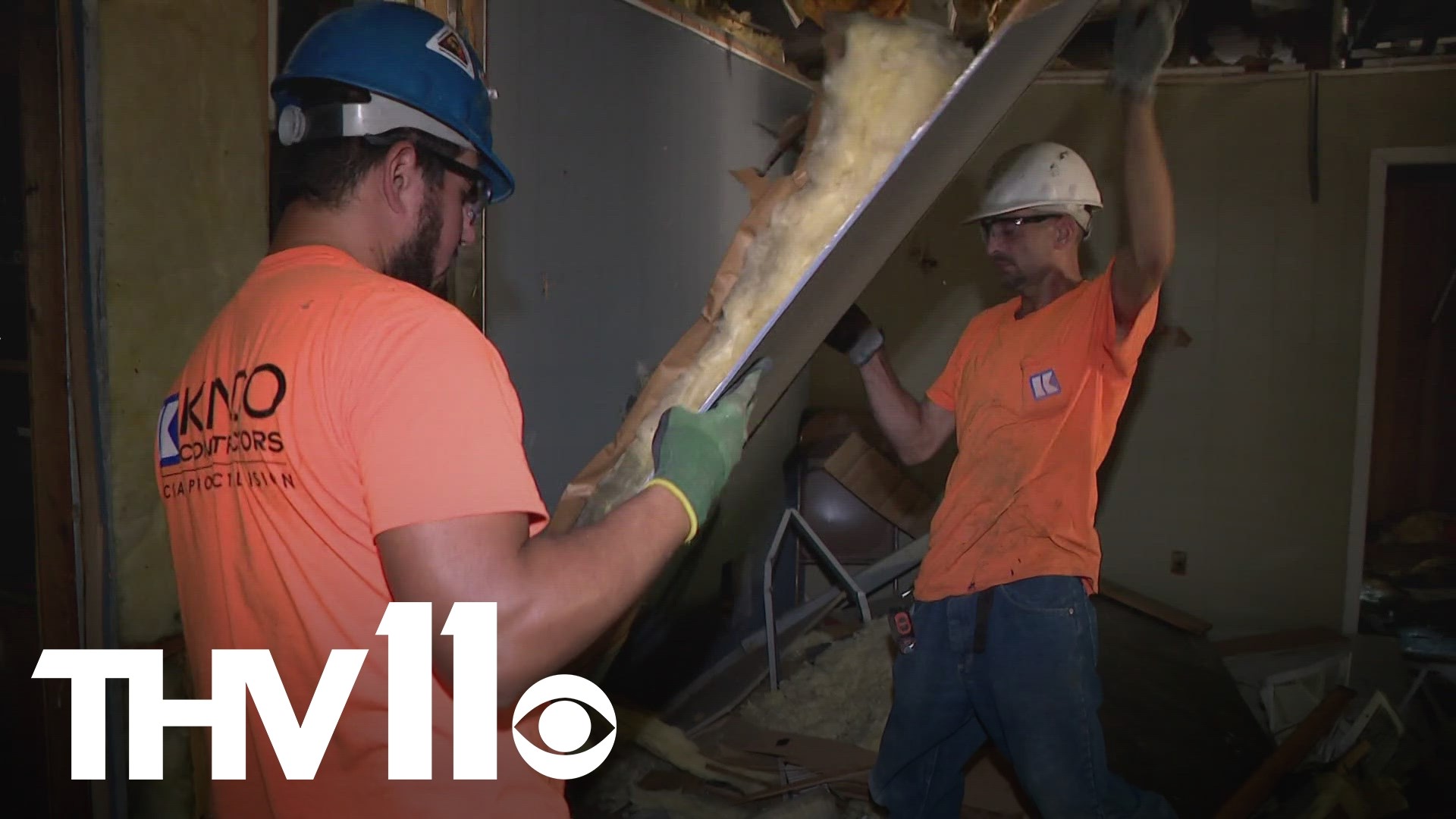LITTLE ROCK, Ark. — Trade school has become a popular option for Americans over the last decade.
According to the Department of Labor, the industry has more than doubled nationwide, and it's grown even more in Arkansas.
Not only are trade schools seeing a rise in attendance, but it's also creating a more diverse workforce.
Jonathan Carson is in his second year at the Arkansas Construction Education Foundation (ACEF), and after switching careers, he's working toward a certification in carpentry.
"It's been tough at first, not knowing as much as I need to," Carson said. "But coming here and learning what I've learned has made it easier."
He explained that a big part of his decision to start the course came down to affordability, as he gets paid for a full-time apprenticeship while attending school.
"Because of this program, we'll have my house paid off in less than a year," Carson said. "Will have my property paid off in just a couple more years."
Carson isn't the only one taking on a new trade, as Executive Director Kathy Fulks said ACEF's program enrollment alone grew about 20% this year.
"We're seeing expansion not just in occupations," Fulks said. "We're seeing it opening up for underrepresented populations, which is wonderful."
The statistics back it up, compared to a decade ago in Arkansas — trade apprenticeships are made up of about ten times more women, three times more people who are Black or African American and five times more people who identify as Hispanic.
This brings in a new generation of skilled workers.
"For years and years, people believed that the only way for you to really have a livable wage was you had to go to college," Fulks said. "We're seeing a lot more of the career technical education side of things hitting the high schools."
But even with so much growth, Fulks said there's no shortage of work.
"The baby boomers, which I'm a part of, we're retiring out, and we're at a larger population than the incoming generations have been," Fulks said. "I have employers who will take anybody green."
Back in the classroom, students are building up new careers, sometimes through tearing some things down.
"That's the whole purpose of my job," Fulks said. "I'm not doing my job if I do not see people advancing their lives."

